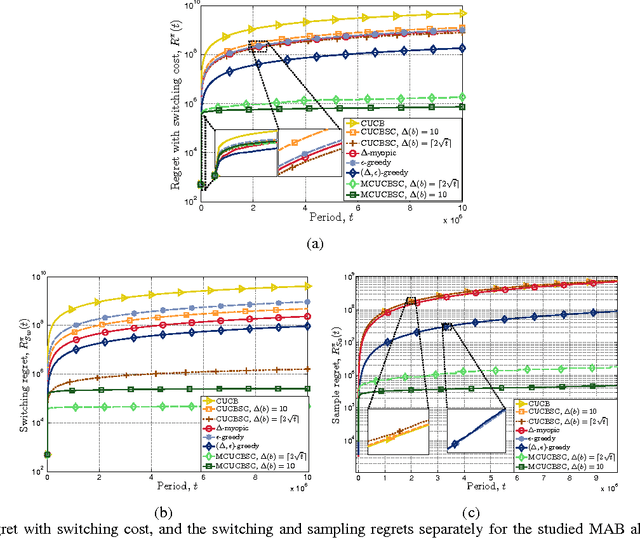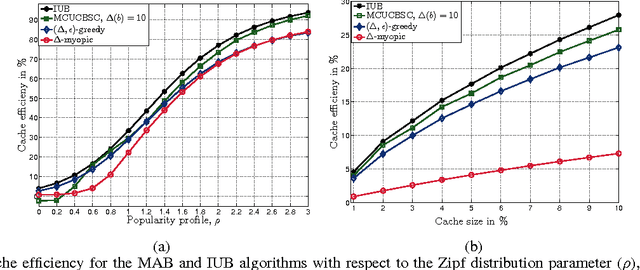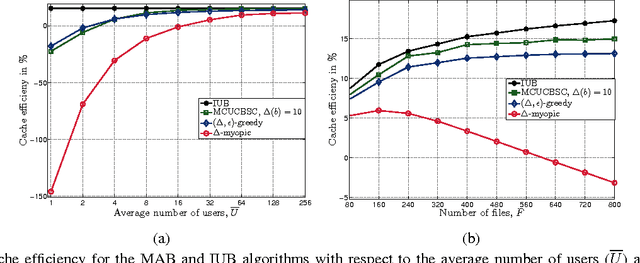Content-Level Selective Offloading in Heterogeneous Networks: Multi-armed Bandit Optimization and Regret Bounds
Paper and Code
Jul 23, 2014


We consider content-level selective offloading of cellular downlink traffic to a wireless infostation terminal which stores high data-rate content in its cache memory. Cellular users in the vicinity of the infostation can directly download the stored content from the infostation through a broadband connection (e.g., WiFi), reducing the latency and load on the cellular network. The goal of the infostation cache controller (CC) is to store the most popular content in the cache memory such that the maximum amount of traffic is offloaded to the infostation. In practice, the popularity profile of the files is not known by the CC, which observes only the instantaneous demands for those contents stored in the cache. Hence, the cache content placement is optimised based on the demand history and on the cost associated to placing each content in the cache. By refreshing the cache content at regular time intervals, the CC gradually learns the popularity profile, while at the same time exploiting the limited cache capacity in the best way possible. This is formulated as a multi-armed bandit (MAB) problem with switching cost. Several algorithms are presented to decide on the cache content over time. The performance is measured in terms of cache efficiency, defined as the amount of net traffic that is offloaded to the infostation. In addition to theoretical regret bounds, the proposed algorithms are analysed through numerical simulations. In particular, the impact of system parameters, such as the number of files, number of users, cache size, and skewness of the popularity profile, on the performance is studied numerically. It is shown that the proposed algorithms learn the popularity profile quickly for a wide range of system parameters.
 Add to Chrome
Add to Chrome Add to Firefox
Add to Firefox Add to Edge
Add to Edge